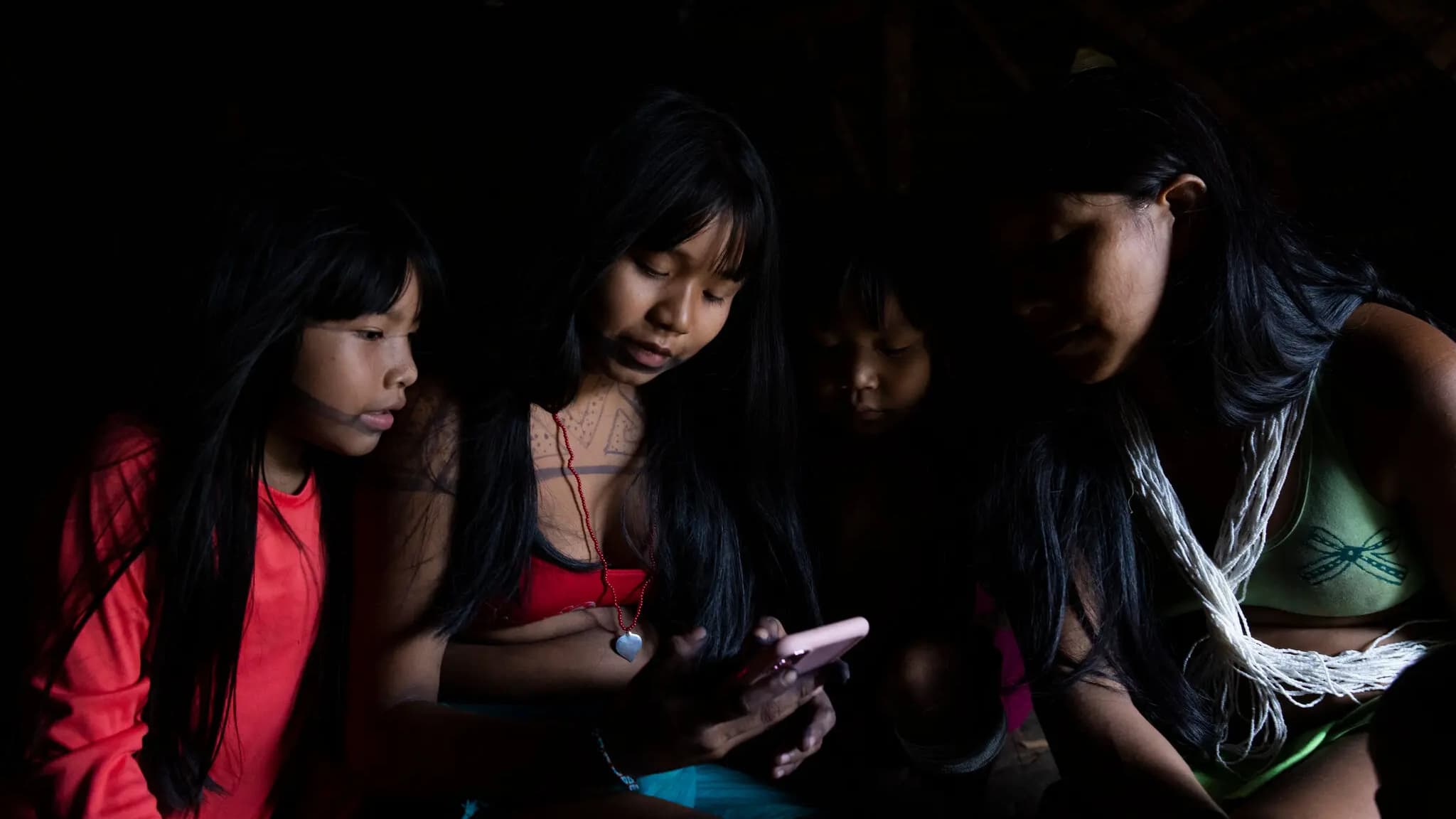
Violent games, pornographic materials… How Elon Musk (against his will) disrupted the daily life of the Amazon tribe
By providing internet to an indigenous ethnic group — hitherto isolated from all modern technological innovation — Elon Musk's Starlink satellites have brought as many benefits as harm.
Along the Itui River, deep in the Amazon rainforest, lies a remote village of the indigenous Marobo ethnic group. A scene, incongruous to say the least, takes place there, under the watchful eyes of Jack Nikas and his photographer, Victor Moriyama, both reporters for New York times. As tribal elders tell their stories, teenagers' eyes are glued to their smartphones.
Some people scroll through their recommendations feed on Instagram. A man sends a message to his girlfriend. Others gather around a phone broadcasting a football match. Internet access to this remote province in Brazil is made possible by Elon Musk's company, Starlink. This constellation of satellites in low orbit is the result of the work of SpaceX, which allows the creation of a dense and fast network capable of providing Internet connectivity, even in less served areas.
An arrival that was initially greeted with joy – because it allows indigenous people to make video calls, for example. “When it happened, everyone was happy,” Tsenama Marobo, one of the tribe’s women leaders, told New York Times reporters. “But things are worse now. Young people are becoming lazy because of the Internet, they are learning the ways of white people,” she breathes, lamenting that the youth of her tribe have lost interest in ancestral traditions, such as manufacturing. Body paint and shell jewelry. However, she sets the record straight: “But please, don't take away the internet from us.”
Addiction, exposure, violent gaming and pornography
A dilemma arises for the Marobo ethnic group. The Internet has become necessary…but at what cost? After just 9 months with Starlink, this tribe is already facing the same challenges that American families have faced for years. Teens addicted to cell phones, addictive social networks, the dangers of online exposure, violent video games, misinformation, and even teens exposed to pornography.
When Starlink was deployed as of 2020, one of the tribe's leaders, Enoque Marubo, immediately saw Starlink's potential. The man who had spent years in the city – where the Internet was a common power source – believed he could give his people “a new independence” by allowing them to “communicate better”, “be informed” and “tell their own stories”. “.
That's why, in 2023, he filmed a 50-second video with a Brazilian activist, hoping to find generous donors to fund Starlink.
Only a few days after the video in question was broadcast, Alison Reno, an American space consultant, responded to the request and confirmed that she wanted to help these indigenous people “out of pure altruism.” Allyson Reneau purchases about two dozen Starlink antennas and delivers them to the Marubos. They will be installed on poles and connected to solar panels in villages.
Immediately, the Internet is available. It soon became a problem, to the point of “changing the routine in a disruptive way,” admits Enoch Marubo. Like other commanders, he had to impose limited periods of use: two hours in the morning, five hours in the evening, and a full day on Sunday.
“We can no longer live without the Internet”
During these communication phases, many Marubos remain glued to their smartphones, scrolling through Whatsapp. A valuable communication tool for coordinating villages, alerting authorities in case of health or environmental problems, keeping in touch with loved ones of course, but also for accessing more controversial content such as that linked to pornography.
“Some young people share explicit pornographic videos in discussion groups, which is shocking for our culture,” explains Alfredo Marubo, a tribal leader. “We are afraid that young people will want to try.”
During a meeting of more than 200 Marubo last April on this topic, a discordant voice rose. One of the leaders said: “I do not want people to post in groups and distort my words,” demanding that the Internet be cut off during discussions. “Everyone is so interconnected that sometimes they don't talk to each other anymore,” laments another.
Despite the fears, Enoch Marobo's father says a priest predicted the arrival of a global communication tool, for better or worse. Enoch believes that the Internet will bring more benefits than harms, “at least for now.” Whatever happens, he says, “We can no longer live without the Internet.”
Most read

“Unapologetic pop culture trailblazer. Freelance troublemaker. Food guru. Alcohol fanatic. Gamer. Explorer. Thinker.”
